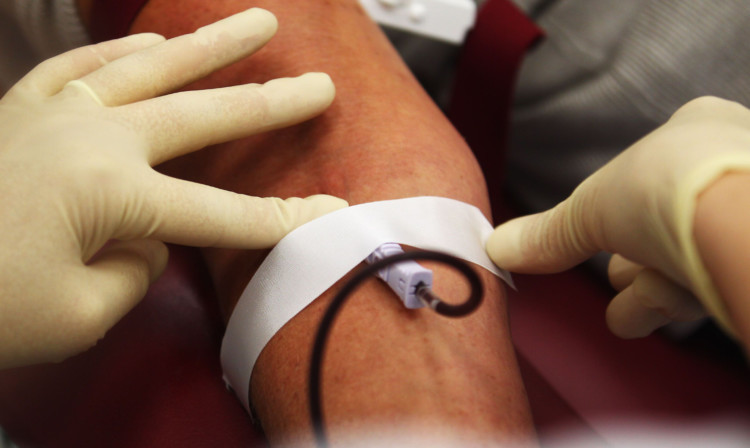
Councils have been accused of bleeding the NHS dry by charging thousands of pounds for hiring rooms to carry out blood donation sessions.
The Scottish National Blood Transfusion Service has spent a massive £640,840 on halls and other venues over the last five years.
Many taxpayer-funded organisations, including councils and schools, used to provide rooms for free but have now started to charge, with some billing the NHS up to £1,000 a time.
There are also huge discrepancies in the amounts they charge.
Margaret Watt, of the Scotland Patients Association, said: “I would have thought they’d give a special rate considering how many lives blood donors save.
“I think it is very sad. They are not collecting blood because they have nothing better to do. It’s because there are people out there who really need it.”
A freedom of information request revealed the Glen Pavilion in Dunfermline, which is owned by Fife Council, charged the most, hosting 11 sessions costing £1,000 each last year. Among the others which charged was the Citadel Leisure Centre in Ayr, run by South Ayrshire Council. It billed the NHS £6,528 for eight sessions at £816 each.
Clackmannanshire Council earned £1,980 for nine sessions at Alloa Town Hall and a further £657 for three sessions at The Cochrane Hall in Alva. But nearly 70 venues across Scotland did not charge the NHS including some which welcomed clinics on numerous occasions.
Among them was Elgin Town Hall, which hosted sessions nine times without charging. The University of St Andrews hosted four sessions for free, and Larkhall Leisure Centre, run by charity South Lanarkshire Leisure and Culture Ltd on behalf of South Lanarkshire Council, also held free sessions.
Brian Coupland, 42, from Carlisle, who received around 300 pints of blood as he battled leukaemia, claimed vital NHS cash was being wasted.
He said: “This is bang out of order. It is absolutely terrible they are charging for this. Surely the publicity they get from notices in local papers should be enough for them, instead of charging the National Health Service. That money could be going to pay for things like hospitals, nurses or doctors instead of hiring a room.”
Last night councils defended the practice of charging for donation sessions. Angus Thomson, a senior manager at Fife Council, said: “The Blood Transfusion Service have been regularly using our excellent facilities at the Glen Pavilion since 2006.
“They have use of the whole building all day the rate we charge for the use of the facility has never been questioned and has not increased in that time. Any profits made from the use of the Pavilion are re-invested into Pittencrieff Park for the benefit of the local community.”
Lynne Willdigg, a spokesperson for blood collection at the Scottish National Blood Transfusion Service, said: “Wherever possible we will always aim to secure venues free of charge in the first instance. However, the hire cost of a venue is not necessarily the only factor in choosing a suitable location. In many places across Scotland there may be limited options and, in certain areas, only one venue available.
“Many venues, including public sector organisations, allow us to use their facilities to collect life-saving donations to their detriment. The economic reality is that unless these venues are being used regularly and maintained to a specific level, they would be become unsuitable for the purposes of blood collection.”
She added that councils across Scotland give the service a huge amount of support, including funding annual award ceremonies which thank donors.

Enjoy the convenience of having The Sunday Post delivered as a digital ePaper straight to your smartphone, tablet or computer.
Subscribe for only £5.49 a month and enjoy all the benefits of the printed paper as a digital replica.
Subscribe